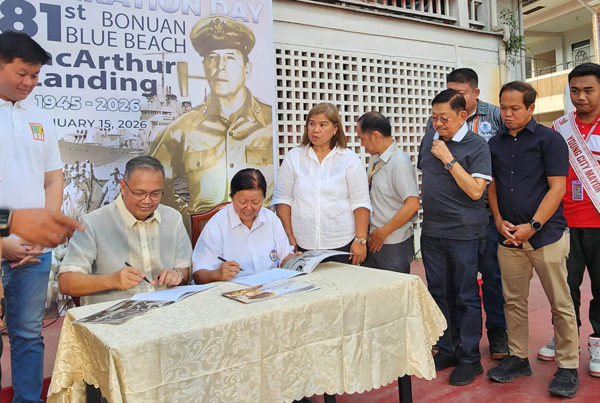First Delta case submits negative RT-PCR test
PANGASINENSES finally heaved a sigh of relief after the lone Delta case registered in Pangasinan and all his close contacts turned in negative results in their RT-PCR tests conducted by the Pangasinan Molecular Laboratory on August 10.
Provincial Health Officer Dr. Anna de Guzman said the newly arrived 23-year-old seaman, who just returned home to Natividad, as well as members of his family, all tested negative in their RT-PCR tests on August 11.
De Guzman also announced that the OWWA personnel who received and processed the OFWs after alighting from the bus also tested negative in their RT-PCR test results.
She said it was only on August 6 when she and members of the provincial IATF-IED learned that a Delta variant case had entered Pangasinan when the OWWA head office advised the DOH-Center for Health Development 1 that cited the Whole Genome Sequencing on the specimens of the seaman confirmed that it was the highly transmissible Delta variant that infected him.
Consequently, the seaman was placed under strict home quarantine and members of his family who were his close contacts were brought to the local government’s facility in Natividad for isolation. All were swabbed for RT-PCR tests.
De Guzman said 11 of the OFWs who rode in the bus with the seaman had already been located and are scheduled for swabbing, while the tracing for the others continue.
However, De Guzman said the traced OFWs reportedly did not complete their 10-day mandatory quarantine in their respective hometowns and joined reunion activities with friends and relatives.
She said the results of whole genome sequencing takes time since the Philippine Genome Center in Manila is the only one of its kind in the country although priority for the whole genome sequencing are the specimens of OFWs and returning overseas Filipinos while genome sequencing of others who tested positive for COVID-19 are only done at random.
This was the reason why results of genome sequencing of the specimens of the seaman from Natividad came three or four weeks after he had already gone home.
De Guzman said because of this big gap in time for the results to be known, people cannot but suspect that a local transmission of the Delta variant may have already happened, especially in areas where COVID-19 cases are noticeably high.
She added that the most common manifestation of the Delta variant is respiratory tract infection, colds and sore throat which are not seen in ordinary COVID-19 cases. The symptoms of ordinary COVID case are loss of taste, smell, fatigue and fever.
She said the person infected with Delta variant concern eventually has breathing difficulty particularly if he or she is unvaccinated. (Leonardo Micua)







